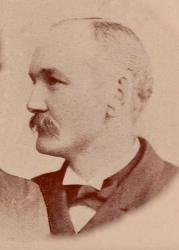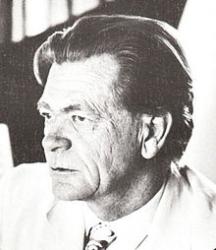1620 - 1682 Meter: 7.8.7.8 with refrain Author of "Jesus the Light of the World" in The A.M.E. Zion Hymnal Janus, Martin, seems to have been a native of Silesia, and to have been born about 1620. After receiving his license in theology, he became Precentor of the two churches at Sorau, in Silesia, then, about 1653, was appointed Rector of the Evangelical School at Sagan, and Precentor at the church near the Eckersdorf gate. He became Pastor at Eckersdorf about 1664, but was expelled by the Imperial Edict of March 13, 1668, by which all Evangelical pastors and teachers were driven out of the principality. He is said to have become Precentor at Ohlau, in Silesia, and died there about 1682. The only hymn by him translation into English is:—
Jesu meiner Seelen Wonne. Love to Christ. Included in the Christlich Herzens Andacht, Nürnberg, 1665 [Wolfenbüttel], No. 24, in 18 stanzas, repeated with his name in the Nürnberg Gesang-Buch, 1676, &c, and in Porst's Gesang-Buch, ed. 1855, No. 715. Sometimes erroneously ascribed to J. Scheffler. The translation is, "0! at last I did discover," beginning with stanza v. as No. 464 in pt. i. of the Moravian Hymn Book, 1754. In the 1789 and later eds. (1886, No. 338) it begins "0! at last I've found my Saviour." [Rev. James Mearns, M. A.]
--John Julian, Dictionary of Hymnology (1907)
Martin Janus




